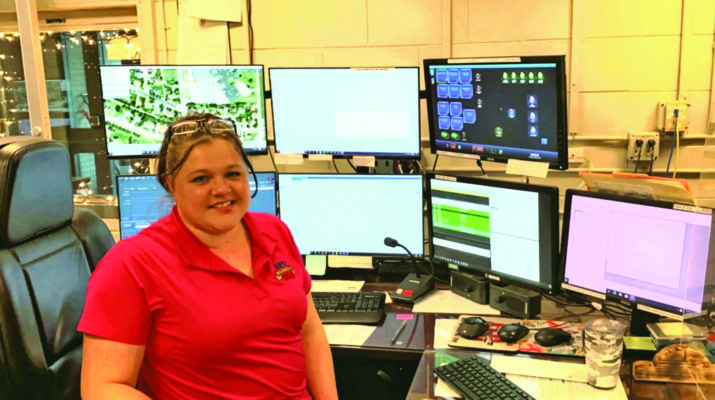By LEIGH SHAKES
We are the voice of calm and at times your life line when someone calls 9-1-1.
A dispatcher gathers important information from the caller and then alerts the police and other emergency service providers where to go. Dispatchers are the first responders on scene, though not physically.
Dispatchers gather vital information from the caller to assess what the “big picture” is and what resources the caller is needing. As a dispatcher, multitasking is a huge part of what we do. Juggling tasks include, speaking to the initial caller, taking other calls, dispatching and speaking to law enforcement, fire or ems at the same time.
The information you give a dispatcher is important and can help get responders to you faster when you know what information to give us. “911, where is the address of your emergency?” Those are the words you’re likely to hear when you dial 9-1-1.
What should your response be? First, take a deep breath and stay calm. 911 dispatchers are trained to calmly and effectively gather information and assess situations. Give the address or location, in as much detail, to where exactly you are. Tell your dispatcher exactly what you need; fire, ems, and/or police.
Describe what the call is for. For medical calls you will be asked if the patient is conscious or breathing and the chief complaint. For law enforcement calls provide as much information in detail to what is happening. The richer the details the more information law enforcement has, the easier we can see the “big picture.”
A few things dispatchers would love for you to know; if you do accidentally call 911, stay on the line and let us know location is, but most importantly you’re okay. We also like to ask lots of questions to make sure we understand what is going on, and repeat the information given to verify your location and what is happening so we can get resources to you as fast as possible.
Dispatchers are here 365 days a year, waiting to serve the public every day rain, snow and shine, you call we will be there.

